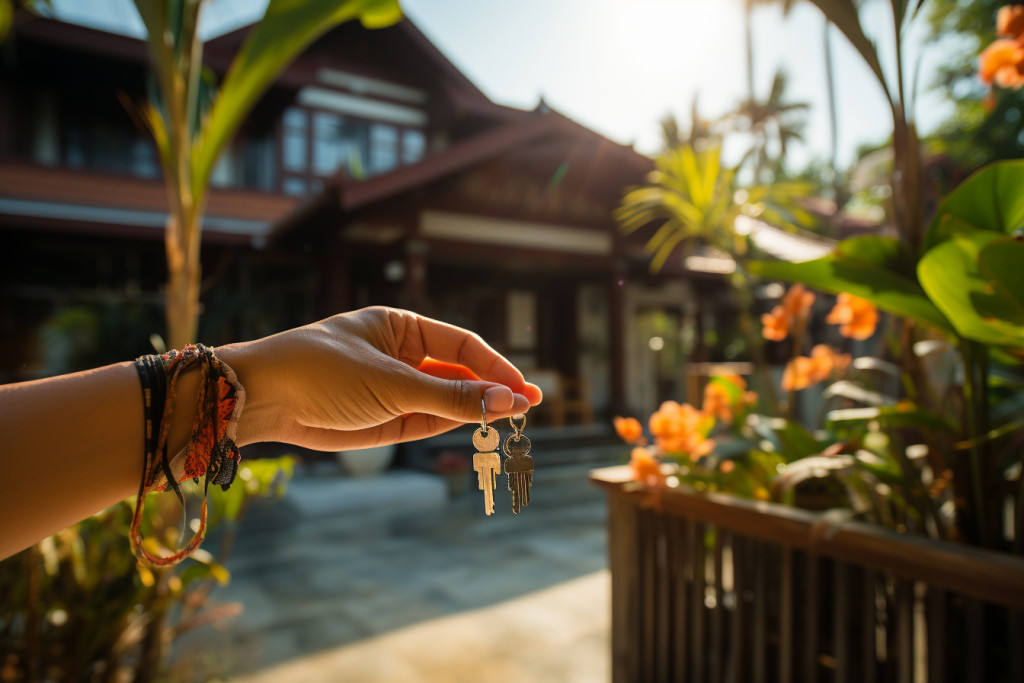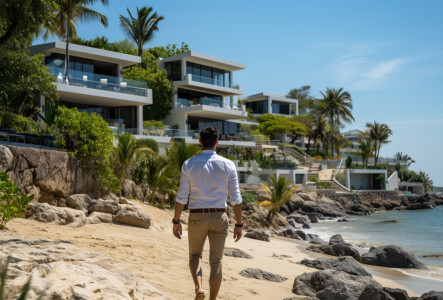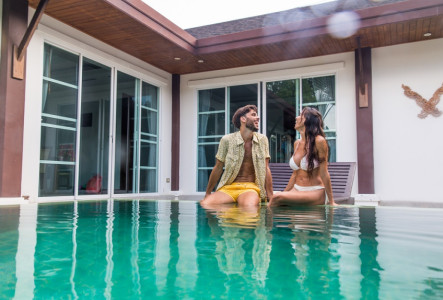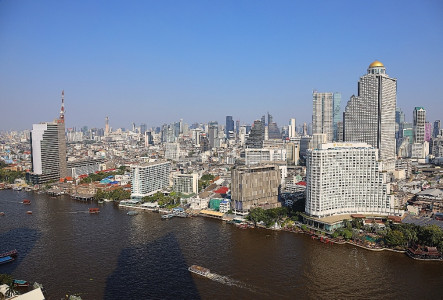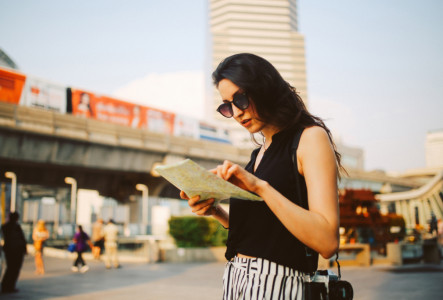The purchase of real estate in Thailand - 7 things you need to know before taking the plunge
24/07/2023If you asked travelers returning home after visiting Thailand for the first time if they thought about buying a property in Thailand during their trip, most would admit they did.
Let us face it, Thailand has all of the amenities of a tropical paradise that those living in the real world imagine retiring early for.
It may have either been on your bucket list for some time, or just an idea that came to mind suddenly but thinking about the possibility of purchasing real estate in Thailand, the 'Land of 10,000 smiles', puts you in a very large group and with good reason. In the end, Bangkok is not among the most popular places in the world for no reason.
As the home of a rich and sophisticated cultural heritage, Bangkok gives travelers a genuine feeling of mystery and wonder but also extreme convenience and five-star amenities and facilities. This balance of East and West is one of the main reasons why foreigners have decided to purchase property in Bangkok. In this city, referred to by its nickname of 'Venice of the East', you can wander through ancient palaces and temples during the day and enjoy the lively and fast-paced entertainment Bangkok is famous for in the night. Add in the fact that it is just an hour's drive from world-class beaches, rolling mountains as well as other Southeast Asian countries in the close vicinity, and it is easy to come up with a number of reasons to buy property in Bangkok.
With everything Bangkok has to offer for the romantic, it could seem like the ideal location to buy a home abroad. However it is crucial to understand all the facts and differentiate the fantasy from the reality prior to thinking about buying a property in Bangkok. There are some unique, strict and distinctive Thai laws and guidelines that apply to buying real estate in Thailand particularly for foreigners. These are the seven most crucial aspects to consider prior to deciding to purchase a condominium unit, a plot of land or any other property type in Bangkok.
1. Methods of Ownership in Thailand
Under Thai law, foreigners are not allowed to own land in their own name. If foreigners are looking to purchase land here, there are two paths they could choose from. One is not actually having the property for themselves but rather leasing it out for a period of 30 year, twice renewable. This scenario could also involve a foreign national marrying a Thai citizen, in which the Thai national acquires the land and long leases it to the foreign national. Another option is to establish a Thai Limited Company. If you decide to do this however, you must be aware that , as a foreigner you are not able to hold more than 50% of the shares of the company. However since you would be holding preferential shares as opposed to nominal shares for the Thai shareholders, you would be holding the majority of voting rights and as such have control over the company.
2. Condos as an easy option for foreigners
Due to the restrictions on the ownership of land, applicable to houses, villas and townhouses, many foreigners consider buying a condo instead. Unlike buying land, foreigners can purchase a condo in their own name. This is the most simple and straightforward method of owning real estate in Thailand. The standard, as per the 1979 Thailand Condominium Act, is that foreigners are able to own the entire condo located anywhere in Thailand as long as the building in which the condo unit is located is at least 51 percent Thai owned. This means that in any condominium building, up to 49% of the units can be sold to foreigners. It is therefore possible for a non-Thai non-resident foreigner to own 100 percent of a freehold condo in Thailand. Around 20 percent of the condos located in Bangkok are owned by foreign either as investors or residents.
3. Loan options
When buying a condo in Thailand there are some conditions to follow and many of them are related to financing. In general, foreigners have a difficult time obtaining the financing they need through Thai banks. Living in Thailand for a few years, with a history of work and marriage licenses, work permits and more, would help. If you do not have a long-standing history of working or living in Thailand, it is easier to consider applying for a loan in your home country.
4. Carrying out due diligence on the Property
When considering purchasing real estate in Thailand, particularly an off plan or under construction condo, it is important to carry out due diligence on the property in order to make sure your investment is safe. The value of property in Bangkok has risen dramatically over the past 15 years and many property developers have seen this as an opportunity to build more and more projects. This has led to a minimal regulation and sometimes poor construction quality of the condos. Do some research, speak to the residents and ask whether they are happy with the construction, quality and maintenance of the building. It is also strongly recommended to contact an agency to assist you during the purchasing procedure.
5. Securing the Purchase with a Deposit
Once you find the right property, the first step is to pay a deposit to reserve your property until the remainder of the process takes place. While the property is being reserved in your name your property agent will draw up the Sales and Purchase Agreement which will specify the terms and conditions of the transaction. In Thailand typically, the deposit will equate to 5 to 10 percent of the purchase cost. The remainder will be subtracted from the purchase cost. If you default, the seller will keep the deposit and if the seller does, the deposit will be refunded to you. Make sure these terms are written in the agreement.
6. Preparing a Will in time
If you are planning to purchase a property in Bangkok as part of your retirement plan, it is important to remember that when it comes to transferring your Thai property to your children as a basis of inheritance, things can get quite complicated. Although it may not be pleasant to think about your passing and your heirs inheriting the property before it actually happens, it is better to arrange all inheritance paperwork in due course otherwise your heirs will have to demonstrate to government officials that they have the right to claim the property exactly as you were when you purchased it. The best way to accomplish this is to create a will in both your home country as well as in Thailand which contains the Thai property. This will protect your children, or your heirs, from the anxiety of dealing with unexpected complications during this difficult period.
7. Hardly no yearly Property Taxes to be paid!
With all the above rules and regulations discussed, Thailand may start to appear to be a more desirable place to visit than to live in, but that could not be further from the truth. Foreigners who own a condo in Thailand for instance have very little property taxes to be paid on a yearly basis, likely to be in the region of 1,000 to 2,000 THB. The transaction tax to be paid at the time of the purchase would also be minimal, namely 1% of the appraisal price of the property.



